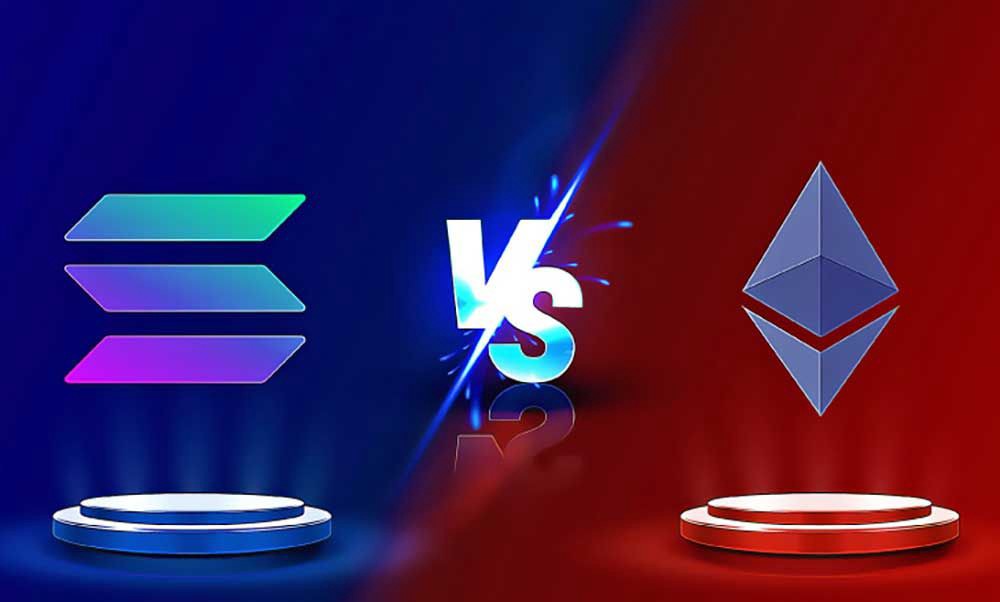How Solana and Cardano are opening new avenues for NFT growth

How Solana and Cardano are opening new avenues for NFT growth. The term “digital ownership” has only recently caught on. While unusable tokens (NFTs) have been around for a while, they have caught mainstream media attention for the past year or two. In the third quarter of 2021 alone, NFT transaction volume was over $ 10 billion across blockchains, a significant increase from the $ 1.2 billion in the second quarter.
NFT is the only digital asset that represents ownership. As proof of ownership, the NFT extends from things like art and digital collectibles to real estate and other physical assets. This is driving tectonic shifts in a wide variety of industries, improving the efficiency of ownership transfers, and creating new terrain for what digital assets can offer.
According to Jonathan Choi, Investment Director at Metaplex – the Solana protocol that sets open standards for issuing and owning digital assets in the chain – while NFT attracts a mainstream audience for digital assets, documents, artwork and collectibles, the Technology behind it NFTs make a lot more sense.
“NFTs can serve a much broader range of use cases, including depicting ownership of physical assets such as real estate, credit, luxury goods, and technical assets,” he told Cointelegraph.
Like most platforms in the field of decentralized finance (DeFi), most NFT-based projects were built on the Ethereum blockchain – and understandably so. Ethereum is the longest running blockchain with smart contracts in the world, and most importantly, NFT sellers want an audience.
Related: Solana Overtakes Cardano, Tether Becomes Fourth Largest Crypto Valued at $ 76 Billion
Go beyond the dominance of Ethereum
However, Ethereum’s role in the growth of the NFT industry is much bigger than a pure storage platform. In fact, it is arguably the now iconic ERC-721 token standard that sparked the NFT revolution in the first place. CryptoKitties was launched almost half a decade ago, and while the platform was hugely popular at launch, the limitations that the blockchain brought with it at the time likely weren’t fully taken into account.
Network congestion and unpredictable, sometimes absurd, high gas charges caused many players to leave the NFT room, but this is no longer the case. Skins like Axie Infinity and Decentraland are driving NFT and GameFi stories further than ever. However, with an indefinite roadmap for the Ethereum 2 upgrade and its scalability updates, not all projects believe it is the best place to start.
CryptoKitties themselves announced the move to their internal flow blockchain, citing issues with Ethereum’s limited throughput and excessive fees. While the platform is no longer the famous NFT it once was, it’s an iconic brand for the space, and its departure from Ethereum could affect more projects on other networks.
“Ethereum will always be a leading chain for NFT adoption and has one of the most vibrant communities in crypto, but there will still be challenges and concerns for crypto chains due to some of its limitations, broader audiences and developers,” added Choi. added.
Networks like Cardano and Solana in particular are breaking into the NFT arena, Solana even launched a $ 5 million fund this year for the creators on board and their fans to enter its ecosystem. . The most popular NFT platform on the Solana blockchain, Solanart is making waves with users in space, producing collections like Degenerate Ape Academy, SolPunks, Aurory and more for hundreds of millions of dollars.
“NFT has a lot of potential and we are currently investigating what could happen,” Frederik Gregaard, CEO of the Cardano Foundation, told Cointelegraph, “for example, implementing mechanisms in the financial sector to ensure the uniqueness of transactions and the accuracy of every order submitted and Pre -Prevent run attacks. ”
He also mentioned other technical use cases in the blockchain ecosystem, including its use as an access control mechanism for utilities and assets on public blockchains and its ability to ensure uniqueness. He added, “Outside the immediate ecosystem, there is potential for mass adoption of NFTs in terms of individual and community property rights.
Cardano may not have gotten into NFT as bravely as Solana, but is making great strides. After the successful Alonzo tricky fork of the network, which enables smart contracts, CardanoKidz was started this year as the first NFT project on Cardano. Just last month, SpaceBudZ made its first ever online sale of NFTs for over $ 1 million.
Before smart contracts went live on the network, users could mint and sell NFTs without a contract address, although properties such as metadata are unlikely to be transmitted over the blockchain. The addition of smart contracts has brought more users to the platform, which has resulted in increased interest in NFTs on Cardano. However, following the introduction of Cardano Improvement Proposal 25, the blockchain now has an NFT metadata standard defined for its native tokens.
Various problems relating to identity, authentication and governance in connection with NFT in the network are dealt with. Past representations of NFT can also be destroyed after ownership transfer, adding a whole new level of exclusivity. With a lot of work being done on these platforms to compete with Ethereum in the NFT space, the dominant smart contract platform will inevitably face some competition.
Related: NFT Royal Music Market Raises $ 55 Million in a Result of a Vng Round
Young, stupid and not too spoiled
Layer-one blockchains like Solana and Cardano offer an alternative to the high transaction costs plaguing the Ethereum network while lowering the barriers to entry for a wider audience. These platforms are also very well positioned with developers building on Website3, as factors such as cost, speed and community growth are very important during the development phase, especially with newer projects.
With interoperability becoming the next target of blockchains, we could also start launching projects on different platforms just to build a bridge to Ethereum to take advantage of the infrastructure of its primary users. Despite the tremendous increase in popularity and acceptance of NFTs, there is still a long way to go before the technology is adopted in all industries around the world.
Tor Bair, founder of the privacy-driven non-profit Magic Formula Foundation, told Cointelegraph, “NFTs are more of a stupid receipt than intelligent property with no control, root access, or privacy for content or buyers. If we can address these issues, we will see NFTs grow to trillions of dollars in art, content, and physical and financial assets. “
He also explained that blockchains must provide new use cases and the design space created by their unique functionality in order to be successful alongside Ethereum in this area, be it through the protection of the original data, improved scalability or global interoperability. In the long run, both Solana and Cardano could become much more prevalent platforms in the NFT ecosystem, introducing unique products on their networks to attract users.
Just this month, world-famous DJ Steve Aoki, in collaboration with legendary comic artist Todd McFarlane, unveiled his NFT collection on Solana, approving it for the first time in more than 30 years since his last sale of original, digital or physical works of art.
Additionally, Cardano and Solana aren’t the only Layer-One blockchains moving to NFT as other prominent platforms like Polkadot, Movement, and Wax are bringing the technology to new audiences.
“NFT is like golf club membership versus crypto, more like cash,” Abhitej Singh, co-founder of the Cosmos-based DeFi platform, told Cointelegraph. According to him, membership in a golf club is dependent on all sorts of factors including early membership, exclusivity, community, and other factors that easy money cannot match.
“Scarcity and exclusivity result in high social and economic membership costs for new members,” he added.
With the advent of new protocols like Move, Solana, and Cardano, the complications of Web 3 will run out and in the next few years NFT could turn out to be one of the greatest advantages of the blockchain network.
.
.























